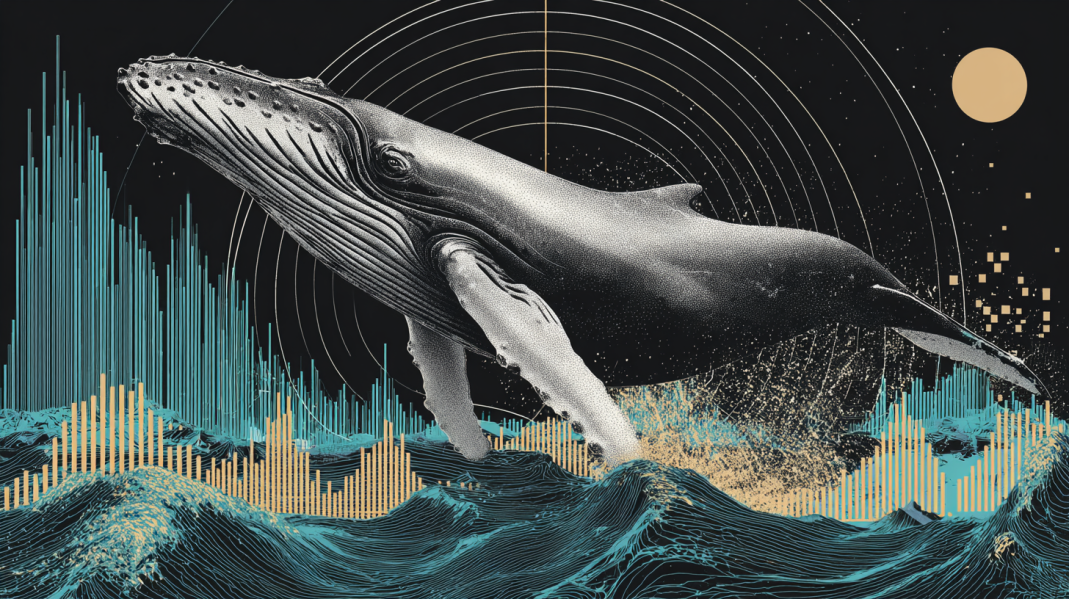Geostar pioneers GEO as traditional SEO faces 25% decline from AI chatbots, Gartner says
The moment Mack McConnell knew everything about search had changed came last summer at the Paris Olympics. His parents, independently and without prompting, had both turned to ChatGPT to plan their day's activities in the French capital. The AI recommended specific tour companies, restaurants, and attractions — businesses that had won a new kind of visibility lottery.
"It was almost like this intuitive interface that older people were as comfortable with using as younger people," McConnell recalled in an exclusive interview with VentureBeat. "I could just see the businesses were now being recommended."
That observation has now become the foundation of Geostar, a Pear VC-backed startup that's racing to help businesses navigate what may be the most significant shift in online discovery since Google's founding.
The company, which recently emerged from stealth with impressive early customer traction, is betting that the rise of AI-powered search represents a significant opportunity to reinvent how companies get found online. The global AI search engine market alone is projected to grow from $43.63 billion in 2025 to $108.88 billion by 2032.
Already the fastest-growing company in PearX's latest cohort, Geostar is fast approaching $1 million in annual recurring revenue in just four months — with only two founders and no employees.
Why Gartner predicts traditional search volume will decline 25% by 2026
The numbers tell a stark story of disruption. Gartner predicts that traditional search engine volume will decline by 25% by 2026, largely due to the rise of AI chatbots. Google's AI Overviews now appear on billions of searches monthly. Princeton University researchers have found that optimizing for these new AI systems can increase visibility by up to 40%.
"Search used to mean that you had to make Google happy," McConnell explained. "But now you have to optimize for four different Google interfaces — traditional search, AI Mode, Gemini, and AI Overviews — each with different criteria. And then ChatGPT, Claude, and Perplexity each work differently on top of that."
This fragmentation is creating chaos for businesses that have spent decades perfecting their Google search strategies. A recent Forrester study found that 95% of B2B buyers plan to use generative AI in future purchase decisions. Yet most companies remain woefully unprepared for this shift.
"Anybody who's not on this right now is losing out," said Cihan Tas, Geostar's co-founder and chief technology officer. "We see lawyers getting 50% of their clients through ChatGPT now. It's just such a massive shift."
How language models read the web differently than search engines ever did
What Geostar and a growing cohort of competitors call Generative Engine Optimization or GEO represents a fundamental departure from traditional search engine optimization. Where SEO focused primarily on keywords and backlinks, GEO requires understanding how large language models parse, understand, and synthesize information across the entire web.
The technical challenges are formidable. Every website must now function as what Tas calls "its own little database" capable of being understood by dozens of different AI crawlers, each with unique requirements and preferences. Google's systems pull from their existing search index. ChatGPT relies heavily on structured data and specific content formats. Perplexity shows a marked preference for Wikipedia and authoritative sources.
"Now the strategy is actually being concise, clear, and answering the question, because that's directly what the AI is looking for," Tas explained. "You're actually tuning for somewhat of an intelligent model that makes decisions similarly to how we make decisions."
Consider schema markup, the structured data that helps machines understand web content. While only 30% of websites currently implement comprehensive schema, research shows that pages with proper markup are 36% more likely to appear in AI-generated summaries. Yet most businesses don't even know what schema markup is, let alone how to implement it effectively.
Inside Geostar's AI agents that optimize websites continuously without human intervention
Geostar's solution embodies a broader trend in enterprise software: the rise of autonomous AI agents that can take action on behalf of businesses. The company embeds what it calls "ambient agents" directly into client websites, continuously optimizing content, technical configurations, and even creating new pages based on patterns learned across its entire customer base.
"Once we learn something about the way content performs, or the way a technical optimization performs, we can then syndicate that same change across the remaining users so everyone in the network benefits," McConnell said.
For RedSift, a cybersecurity company, this approach yielded a 27% increase in AI mentions within three months. In one case, Geostar identified an opportunity to rank for "best DMARC vendors," a high-value search term in the email security space. The company's agents created and optimized content that achieved first-page rankings on both Google and ChatGPT within four days.
"We're doing the work of an agency that charges $10,000 a month," McConnell said, noting that Geostar's pricing ranges from $1,000 to $3,000 monthly. "AI creates a situation where, for the first time ever, you can take action like an agency, but you can scale like software."
Why brand mentions without links now matter more than ever in the AI era
The implications of this shift extend far beyond technical optimizations. In the SEO era, a mention without a link was essentially worthless. In the age of AI, that calculus has reversed. AI systems can analyze vast amounts of text to understand sentiment and context, meaning that brand mentions on Reddit, in news articles, or across social media now directly influence how AI systems describe and recommend companies.
"If the New York Times mentions a company without linking to it, that company would actually benefit from that in an AI system," McConnell explained. "AI has the ability to do mass analysis of huge amounts of text, and it will understand the sentiment around that mention."
This has created new vulnerabilities. Research from the Indian Institute of Technology and Princeton found that AI systems show systematic bias toward third-party sources over brand-owned content. A company's own website might be less influential in shaping AI perceptions than what others say about it online.
The shifting landscape has also disrupted traditional metrics of success. Where SEO focused on rankings and click-through rates, GEO must account for what researchers call impression metrics — how prominently and positively a brand appears within AI-generated responses, even when users never click through to the source.
A growing market as SEO veterans and new players rush to dominate AI optimization
Geostar is hardly alone in recognizing this opportunity. Companies like Brandlight, Profound, and Goodie are all racing to help businesses navigate the new landscape. The SEO industry, worth approximately $80 billion globally, is scrambling to adapt, with established players like Semrush and Ahrefs rushing to add AI visibility tracking features.
But the company's founders, who previously built and sold a Y-Combinator-backed e-commerce optimization startup called Monto, believe their technical approach gives them an edge. Unlike competitors who largely provide dashboards and recommendations, Geostar's agents actively implement changes.
"Everyone is taking the same solutions that worked in the last era and just saying, 'We'll do this for AI instead,'" McConnell argued. "But when you think about what AI is truly capable of, it can actually do the work for you."
The stakes are particularly high for small and medium-sized businesses. While large corporations can afford to hire specialized consultants or build internal expertise, smaller companies risk becoming invisible in AI-mediated search. Geostar sees this as its primary market opportunity: nearly half of the 33.2 million small businesses in America invest in SEO. Among the roughly 418,000 law firms in the U.S., many spend between $2,500 and $5,000 monthly on search optimization to stay competitive in local markets.
From Kurdish village to PearX: The unlikely partnership building the future of search
For Tas, whose journey to Silicon Valley began in a tiny Kurdish village in Turkey with just 50 residents, the current moment represents both opportunity and responsibility. His mother's battle with cancer prevented him from finishing college, leading him to teach himself programming and eventually partner with McConnell — whom he worked with for an entire year before they ever met in person.
"We're not just copy and pasting a solution that was existing before," Tas emphasized. "This is something that's different and was uniquely possible today."
Looking forward, the transformation of search appears to be accelerating rather than stabilizing. Industry observers predict that search functionality will soon be embedded in productivity tools, wearables, and even augmented reality interfaces. Each new surface will likely have its own optimization requirements, further complicating the landscape.
"Soon, search will be in our eyes, in our ears," McConnell predicted. "When Siri breaks out of her prison, whatever that Jony Ive and OpenAI are building together will be like a multimodal search interface."
The technical challenges are matched by ethical ones. As businesses scramble to influence AI recommendations, questions arise about manipulation, fairness, and transparency. There's currently no oversight body or established best practices for GEO, creating what some critics describe as a Wild West environment.
As businesses grapple with these changes, one thing seems certain: the era of simply optimizing for Google is over. In its place is emerging a far more complex ecosystem where success requires understanding not just how machines index information, but how they think about it, synthesize it, and ultimately decide what to recommend to humans seeking answers.
For the millions of businesses whose survival depends on being discovered online, mastering this new paradigm isn't just an opportunity — it's an existential imperative. The question is no longer whether to optimize for AI search, but whether companies can adapt quickly enough to remain visible as the pace of change accelerates.
McConnell's parents at the Olympics were a preview of what's already becoming the norm. They didn't search for tour companies in Paris. They didn't scroll through results or click on links. They simply asked ChatGPT what to do — and the AI decided which businesses deserved their attention.
In the new economy of discovery, the businesses that win won't be the ones that rank highest. They'll be the ones AI chooses to recommend.





























































